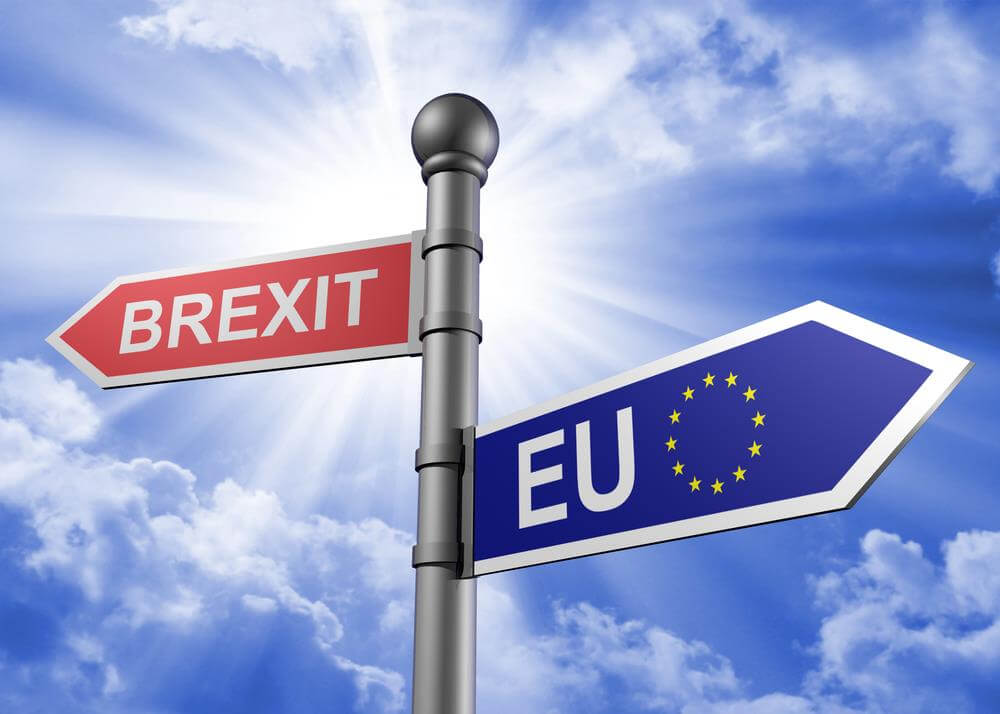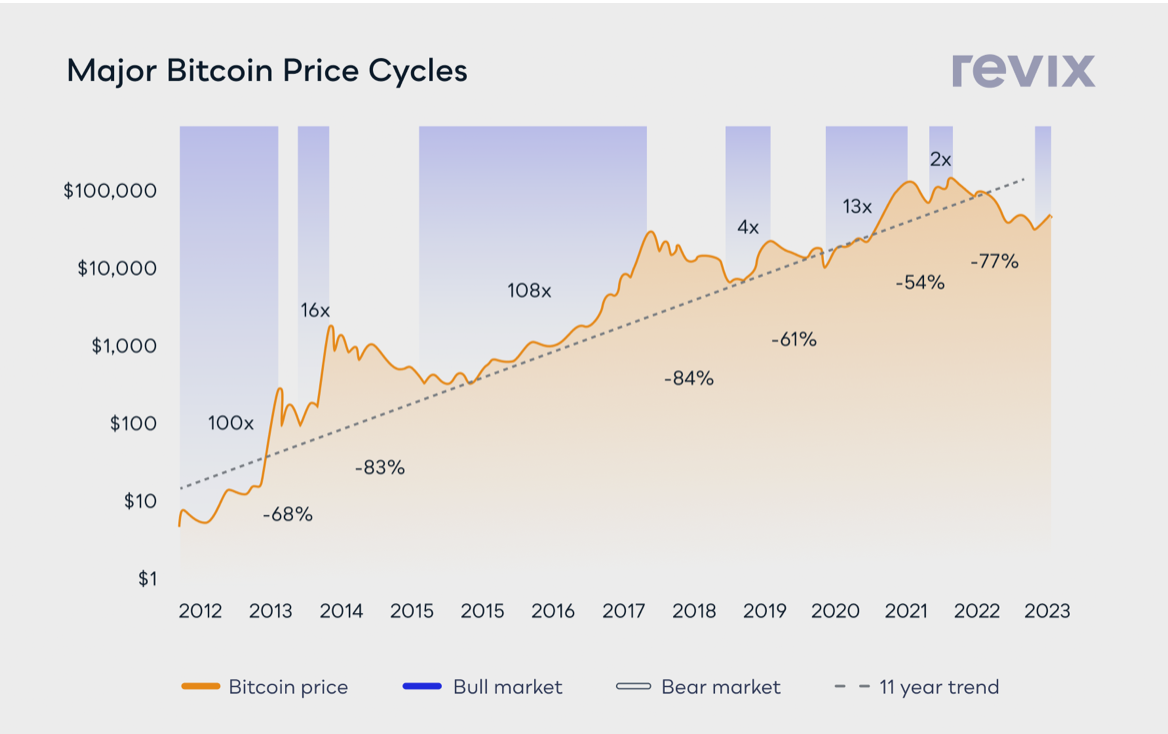Uncertainty surrounding the UK’s decision whether or not to leave the EU is starting to test traders’ nerves. Implied volatility of the GBP/USD spiking to 29% – a level comparable to the extreme highs seen in the 2008 financial crisis – and 10 year gilts yielding less than 1.1% to reach new historic lows (see Chart 1) means risk-off positioning is now starting to build up.
Equity markets in Europe had resisted succumbing to significant downward pressure in the weeks leading up to the referendum. But if last year’s “Grexit” event is any guide, risk sentiment in Europe remains fragile.
As shown in Chart 2, in the final weeks leading up to last year’s “Grexit” referendum on 3 July 2015, the FTSE 100 and EURO STOXX sold off sharply, falling by about 6% over a 30 workday period prior to that referendum. Another 2% was shed off European equity markets following the rejection of Troika’s bailout package.
Comparing the same period to this year’s potential “Brexit” outcome on 23 June, equity markets in Europe remained positive up until last week, since when sentiment has soured sharply (see chart 2). Against last year’s heightened volatility instigated by slumping crude oil and China’s slowdown fears that dealt a blow to equities in Europe and elsewhere, markets must judge the reverberations of a Brexit scenario to European shares as either hugely overblown or, that such a scenario is simply not being priced-in enough. Investors may be looking for bookmakers’ odds for guidance more so than opinion polls, not least given the extent to which most pollsters have failed to accurately read the Conservatives’ strong showing in last year’s UK general election. While the opinion polls show that both the “Remain” and “Leave” camps remain essentially tied, with shifts between them moving within the margin of error, bookmakers odds have shown for some time now a persistent and decisive majority of punters betting Britain to vote “Remain”. For instance, while the YouGov / Times has UK’s EU referendum at 43% “Remain”, 42% “Leave”, and 11% “Don’t Know”, betting firms see 59% “Remain” and 41% “Leave”[1], with the best odds for those betting on “Remain” at a 34% return on their stake while the best odds for “Leave” making a 250% return[2].
Certain Uncertainty not Reflected in European Equities
While the looming threat of Greece’s default and systemic risk inherent in Europe’s banking system in an event of Greece exiting the Euro cannot be directly comparable to the risks of “Brexit”, the political and economic uncertainty is likely to be still substantial enough for investors to consider hedging their positions in European assets. The risks short to mid-term to financial markets in a nutshell are the following:
1. Britain’s Brexit camp has yet to articulate what kind of trade model is wants to adopt and, judging purely by the Brexit camp rhetoric border control and eliminating EU contributions, it is unlikely to be one of Europe’s non-EU members: Switzerland and Norway each pay into the EU budget and allow for free movement of EU citizens in exchange for free trade and capital flows. History suggests it will take several years to renegotiate trade deals and any deals struck will be on terms set by the EU, not the UK. Until then, investors will simply not know what the terms of trade and capital flows will be.
2. If not out of economic sense it will be for the sake of self-preservation that EU officials will impose some kind of penalty to the UK for leaving, through a custom’s charge, tariff and other barriers (such as raising product standards through labelling / packaging requirements, etc.) to preclude other EU members from following UK’s lead and prevent the disintegration of the EU. Given Britain’s overly open economy, it will effectively result in a meaningful tax for UK companies exporting to the EU.
3. The political uncertainty of Britain is also relatively large. With David Cameron’s leadership already challenged by about half its Conservative PMs, a new PM embracing a more rightist agenda may also mean major reshuffling of cabinet members, including David Cameron’s Finance Minister (Chancellor of the Exchequer) George Osborne. As a result, tax and spending policies may change and consequently the budget deficit targets.
4. Scotland and Ireland are also vocal supporters of the EU and a Brexit scenario would likely provoke another Scottish referendum for independence. Building up a UK border could also put the vulnerable peace process with Northern Ireland at risk and see tensions flare up with Ireland anew. At risk is the fracturing of Britain’s political union.
Last week’s souring sentiment in European equities may be a prelude to more risk-off positioning such as was seen in Grexit last year. Investors should be prepared for the potential eventuality that uncertainty building up in the pound may spread to rising volatility in European equities. Hedging long European equity exposures and long dollar strategies may regain appeal.
Investors sharing this sentiment may consider the following ETPs:
• Boost FTSE 100 1x Short Daily ETP (SUK1)
• Boost FTSE 100 2x Short Daily ETP (2UKS)
• Boost FTSE 100 3x Short Daily ETP (3UKS)
• Boost FTSE 250 1x Short Daily ETP (1MCS)
• Boost EURO STOXX 50 3x Short Daily ETP (3EUS)
• Boost EURO STOXX Banks 3x Short Daily ETP (3BAS)
• Boost ShortDAX 3x Daily ETP (3DES)
• Boost FTSE MIB 3x Short Daily ETP (3ITS)
• Boost Gilts 10Y 3x Leverage Daily ETP (3GIL)
• Boost Long USD Short EUR 4x Daily ETP (4USE)
• Boost Long USD Short EUR 5x Daily ETP (5USE)
Disclaimer
For investment professionals only. This communication has been provided by WisdomTree Europe Ltd which is an appointed representative of Mirabella Advisers LLP which is authorised and regulated by the Financial Conduct Authority.



























